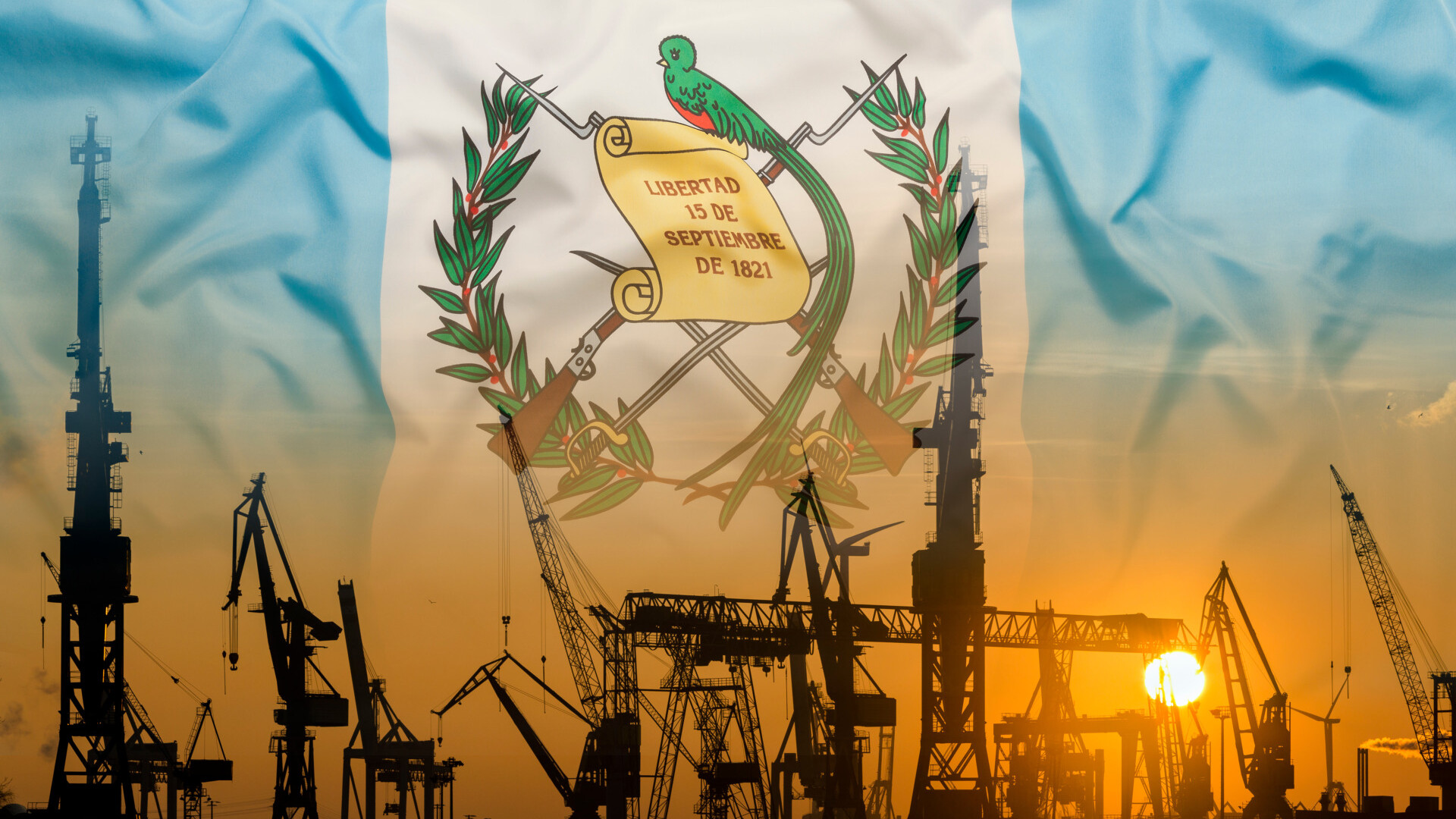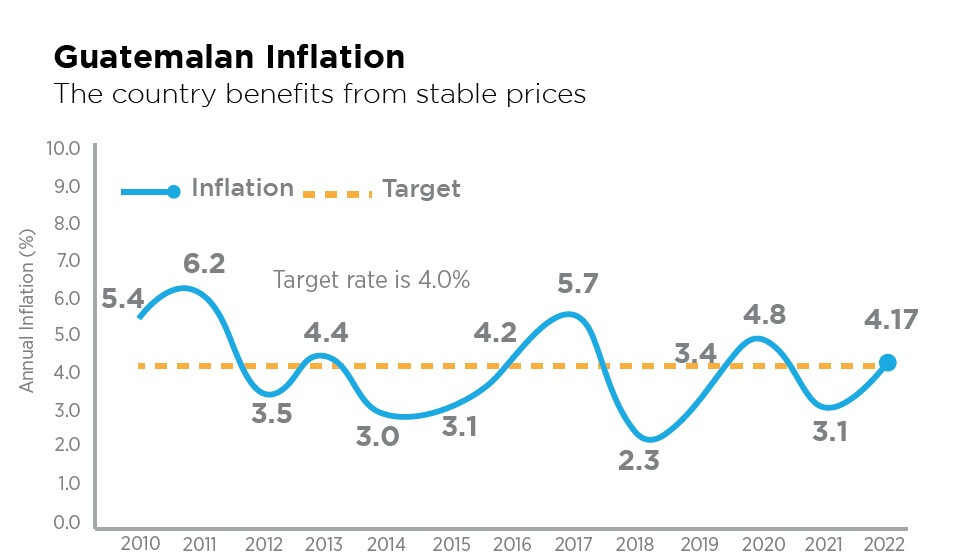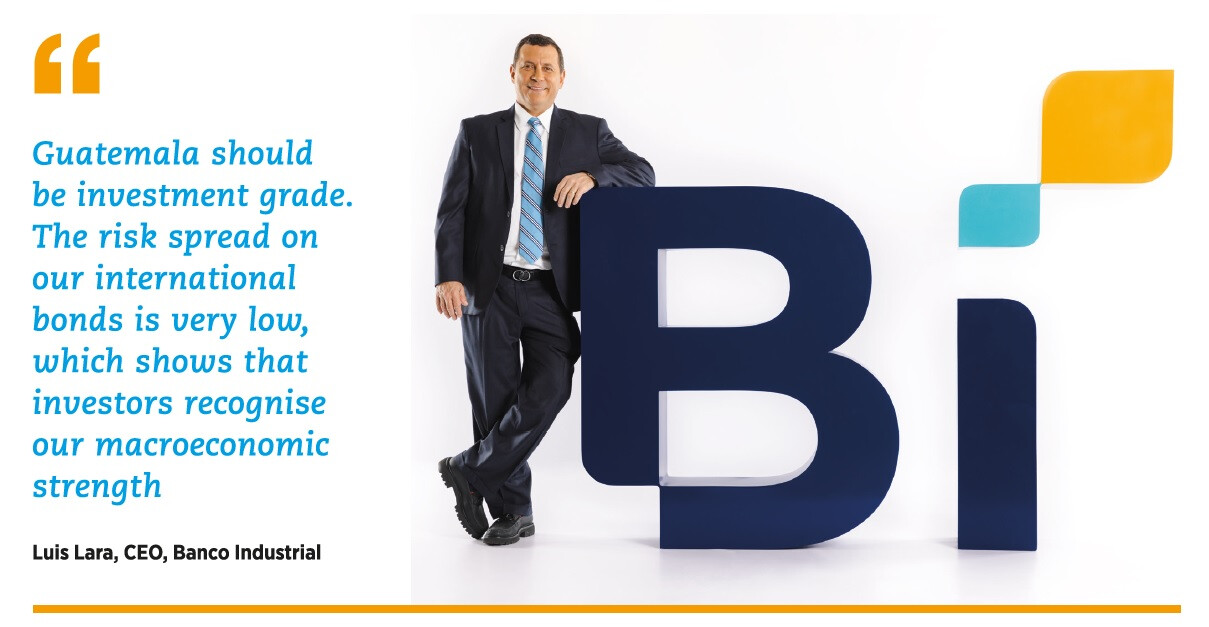Should Guatemala be upgraded?
Ratings agency Moody’s changed Guatemala’s outlook to stable from negative, highlighting the ‘Ba1’ rated-country’s macroeconomic strengths and promising growth prospects…

Ratings agency Moody’s changed Guatemala’s outlook to stable from negative, highlighting the ‘Ba1’ rated-country’s macroeconomic strengths and promising growth prospects…
Guatemala’s economy is bulletproof. Literally. Since 1960 it has a compound annual growth rate of 3.5%. GDP expanded steadily throughout the country’s civil war, during the whole of Latin America’s ‘lost decade’ in the 1980s and the global financial crisis. Even the pandemic could only temporarily take -1.5% off Guatemala’s economy in 2020 – and that was quickly compensated by an 8% rebound in 2021. The main driver of the economic growth is positive demographics. Guatemala’s population has almost doubled since 1990 and is the youngest in Latin America with 61% of citizens aged under 30.

The solid growth fundamentals are combined with prudent macroeconomic management. The Guatemalan state has many flaws but successive teams at the Central Bank and Ministry of Public Finance have overseen one of the world’s most conservative fiscal and monetary regimes. “Guatemala’s economy is very stable”, says Luis Lara, CEO of Banco Industrial, Guatemala’s largest bank. “The Central Bank can’t lend to the state, which has helped keep debt-to-GDP at 31%. The IMF calculates that overall debt, which includes country debt, corporate debt and household debt, currently stands at 259% of global GDP. That is higher than in 2009 and probably means that US interest rates won’t rise that much because it would push the world into bankruptcy. In Guatemala overall debt is 66% of GDP, so we are extremely conservative. In 2021, a pandemic year, our fiscal deficit was just 1.2%.”
“Guatemala’s macroeconomic stability is often overlooked”, says Guillermo Montano, CEO of Mobiliare, a Latin America-focused real estate investment trust. “When I try to hedge the Quetzal, traders tell me that it’s too boring because it doesn’t have volatile swings. The steady flow of remittances keeps it stable.”
Time for investment grade?
The combination of steady economic growth, low debt and a stable currency have seen Guatemala move up the grades at the main ratings agencies. It is still two grades off but investors are wondering when it will become investment grade. “Guatemala should be investment grade”, says Lara. “The risk spread on our international bonds is very low, which shows that investors recognise our macroeconomic strength.”
“The problem is that the ratings agencies feel the country lacks social development. They are right that Guatemala needs more hospitals, schools and roads but they are wrong to worry that this could cause a social problem. Guatemala is benefiting from state investment, private-sector investment and high flows of remittances. Indeed, last year the country received $15billion of remittances, which is higher than the government’s tax take. If you travel to the interior of the country, you see consumption, construction and development.”

Diego Herrera, CEO of Pantaleon, a sugar producer and real estate developer that is one of Guatemala’s largest companies, agrees with Lara that outsiders sometimes misunderstand the country’s economy. “It is true that the current quality of public education, healthcare and infrastructure is very poor. As a result, many international observers conclude that if you can’t resolve the social inequalities then the system will collapse. That seems a logical conclusion but it ignores the fact that immigration to the US acts as a pressure valve. That emigration is unfortunate but it also means that the country is more stable than people realise. Clearly the public sector in Guatemala needs deep reform, but large companies reinvest in Guatemala because they believe in the country. The fundamentals are very strong with low debt and little dependence on foreign lenders.”
Upgrade impact
Lara believes the ratings agencies are being tough on Guatemala. “They are meant to focus on a country’s ability to pay its debt and if there is one country that can do that it is Guatemala. We even have a regulation in the Budget Law, where the Central Bank transfers money every day from the state’s account to a fund to ensure it can cover its obligations. When Guatemala eventually becomes investment grade it will change everything. As lots of funds can only invest in investment grade economies.”
Moving beyond the ratings agencies, Herrera notes that there is a complete disconnect between perception and reality in Guatemala. “The real situation in Guatemala is far better than what people read in London or New York. Pantaleon has been in business for more than 170 years and we have never had a single loss-making year. The Guatemalan economy consistently grows at 3% to 4% per year, while during the pandemic its contraction of 1.5% was one of the lowest in the world. We see it in our business, where international consultants found the performance of global retail brands in our shopping centres in Guatemala is equal to Mexico, everyone’s favourite emerging market star. All of this contrasts with the perception of a country run by narcos and beset by gang violence. I think that some NGOs have a vested interest in damaging the reputation of Guatemala.”
Clearly some international investors have got the message, says Karin de León, Coordinator for Pronacom, Guatemala’s economic competitiveness agency. “Foreign direct investment into Guatemala saw a huge increase last year. Our target was $1.2billion dollars, which we had already passed when Milicom’s $2.2billion purchase of its remaining stake in Tigo helped us create a new record of more than $3billion.
In today’s polarised world it can be hard for nuanced stories to be understood. Guatemala is a country with many challenges. The most serious are malnutrition and poverty, while its weak education, health and legal systems are also a major concern. But that doesn’t alter the fact that its key macroeconomic indicators are incredibly solid and plenty of local and international companies have lucrative businesses in the country. As more local firms issue bonds and equity, Guatemala will be become better-known in investor circles. And when the ratings agencies eventually make it investment grade, there will be an investment boom in the country.